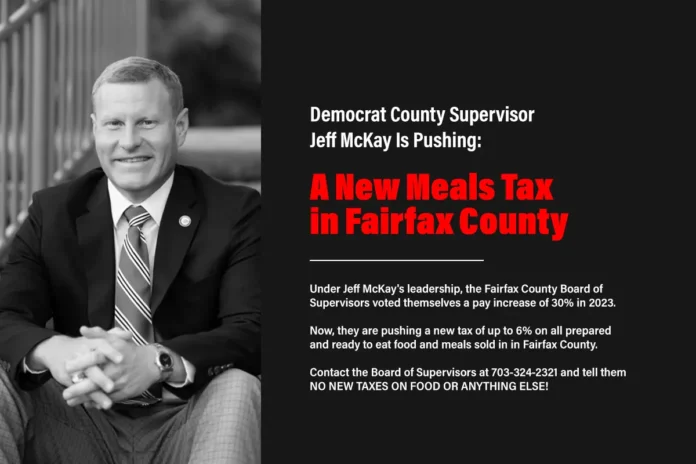Fairfax Co. leaders consider possible plans to tax meals in order to offset $300m budget shortfall
Fairfax County is mulling the idea of implementing a meal tax in the face of a budget deficit for the next year that will be nearly $300 million.
Virginia law allows for a maximum 6% meals tax. The meals tax will be applied to all meals sold by the county’s restaurant.
Representatives from county agencies described the idea of a meal tax in Northern Virginia’s surrounding neighborhoods during Tuesday’s Board of Supervisors Budget Committee Meeting.
The full board is expected to vote next week on whether or not to announce plans for the meal tax.
The fiscal 2026 budget proposal includes almost $60 million of cuts to county agencies, and proposes an increase of 1.5 cents in the real estate taxes. Phil Hagen of Fairfax County Department of Management and Budget said that a possible food and drink tax could “offset these proposed reductions or taxes increases or fund other priority,”
Hagen stated that the food and beverage tax will equal approximately 3.6% of revenue for fiscal 2026. It would be implemented as early as Jan. 1, 2020.
According to county documents, Prince William County, Arlington, and the City of Alexandria have all implemented a meal tax. Loudoun County, however, is not one of them. Fairfax County voters rejected the idea two times.
Taxes will be levied on ready-to-eat food and meals sold in restaurants. This includes drinks that may accompany the food. Taxes will also be applied to food and meals sold at deli counters, as well as ready-to-eat meals.
State law exempts vending machine items and drinks sold separately. Fountain drinks or coffee bought alone would not be taxed. However, coffee purchased along with a bakery product will be.
The food and beverages that are sold in churches, nursing homes, daycare centers or other places would not be taxed, because they are exempt.
Hagen stated that each percent above the state-law limit generates approximately $35 million in annual gross revenue.
According to county projections, a household earning between $100,000 and $150,000 will pay about $49 in taxes.
The county must also decide if it wants to include the dealer discount in the tax.
Hagen explained that the dealer discount allows restaurants to keep a fraction of tax collected to offset their administrative costs.
He said that restaurants who offer a discount to dealers are also more likely to pay the county tax on time.
Hagen stated that about one-third would be paid by the nonresidents. “So a food and drink tax would shift a portion of the overall tax burden of the county from our residents to the nonresidents.”
Mount Vernon District Supervisor Dan Storck stated that his priority was “ensuring that it is fair and equitable, and that businesses compete on an even playing field.”
Chairman Jeff McKay said, however, that the tax would not solve its annual problem, which is determining how much funding Fairfax County Schools needs.
McKay stated that “this is far from solving the problem.” The solution is to implement the recommendations from the Joint Legislative Audit and Review Commission study.
McKay stated that a study found the state underfunding the school system by more than $580 million.
NEWSLETTER SIGNUP
Subscribe to our newsletter! Get updates on all the latest news in Virginia.


